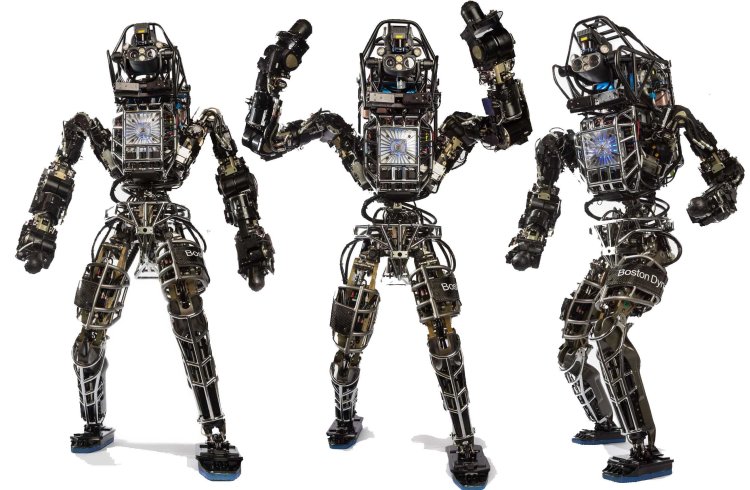Want smarter insights in your inbox? Sign up for our weekly newsletters to get only what matters to enterprise AI, data, and security leaders. Subscribe Now
Google’s robotics division just got a lot bigger with the acquisition of Boston Dynamics, a company that makes four-legged walking robots for the military.
The New York Times reported the acquisition yesterday, although it did not state a price.
Boston Dynamics is best-known as the maker of BigDog, a mule-like quadripedal robot meant for carrying loads over rough ground in combat situations. A video promoting BigDog garnered over 15 million views after it first appeared in 2008, and was popular enough to have spawned parody videos.
Since then, Boston Dynamics has gone on to make faster and smaller gasoline-powered robots, such as WildCat, shown in this October, 2013 video, which the company says can run up to 16 m.p.h. using its “bounding and galloping gaits.”
The company, founded in 1992 by Marc Raibert, began life as a spin-off from the Massachusetts Institute of Technology. Raibert’s research focused on robots that moved in animal-like ways, according to the company’s website.
Boston Dynamics has been heavily funded by DARPA, the defense-oriented U.S. research agency, and supplies its robots to the military via several contracts. Google will honor the company’s existing military contracts, the Times reports, but “does not plan on becoming a military contractor on its own.” By the way, those scary, Terminator-like robots at the top of this post? That’s Boston Dynamics’ Atlas, and it really is here to help you.
However, feel free to use all the “robot army” jokes you want with regards to Google. This is the eighth robot company the company has acquired this year, all feeding into a robotics project headed up by former Android head Andy Rubin. (Read about the Google’s other seven robot companies — including one that played a key role in filming the movie Gravity.) It may not be planning a defense business, but Google is certainly assembling an impressive array of real-world robots, so we’re going to go ahead and call it an “army,” in the metaphorical sense if not the military one.
That’s the perfect complement to its army of Internet bots — which, together with other companies’ bots, now comprise a majority of the Internet’s traffic.
Add in Google’s self-driving cars, and it may be only a matter of time before Google’s robots outnumber humans in the real world, too.







